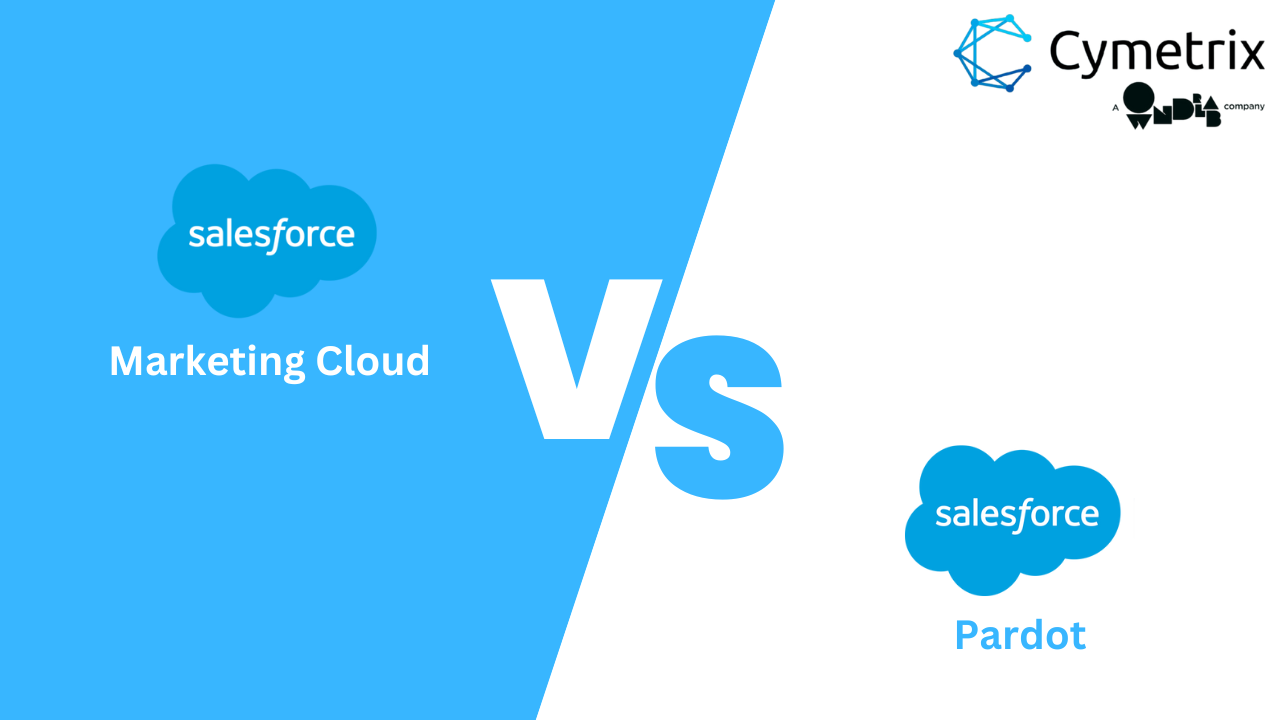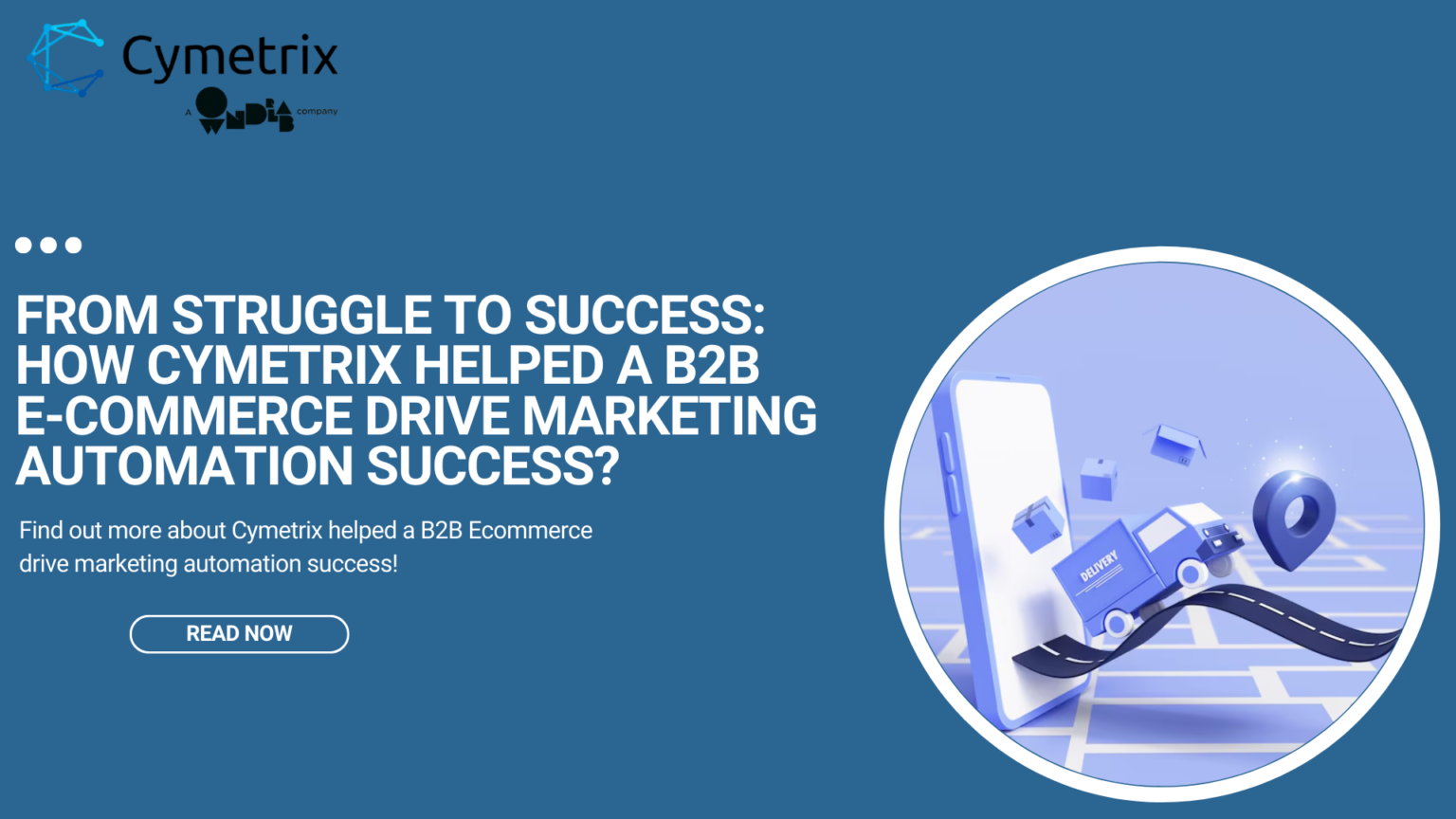
You may not know, but disconnected and inconsistent customer experiences might be causing you to lose potential customers. However, Omnichannel marketing might be the solution you need to revive your marketing strategy. Keep reading to learn more!
Introduction
Nowadays, customers demand more than just a product or service—they expect a seamless, personalized experience across every interaction with your brand. Yet, many businesses struggle to meet these expectations, leading to frustrated customers and lost opportunities.
That is where omnichannel marketing comes into play. By integrating and unifying all your customer touchpoints, omnichannel marketing ensures that every interaction, whether online or offline, is consistent, personalized, and perfectly aligned with the customer's needs.
Recently, a B2B Ecommerce brand collaborated with us, they were looking for consultants who could help them unleash the marketing magic using Salesforce marketing automation. Our Marketing Automation Consultants at Cymetrix helped them understand the potential of omnichannel marketing and how this approach can truly benefit their business. Similarly, today, we are going to shed some light on this topic to help you understand more about omnichannel Marketing.
What is Omnichannel marketing?
Ever interacted with a brand and felt something off with the service and experience they deliver? The price appears to be different on all channels, you’re unable to find the product online, the one you checked out at the store. That's the opposite of what omni-channel marketing is all about.
Omni-channel marketing is all about interacting with customers over whatever channel they prefer (store outlets, website, social media, etc.) and delivering the same consistent experience throughout all channels.
What you may find surprising is that over 73% of shoppers are omnichannel customers. They like to fully utilize all retailer touchpoints or a combination of multiple channels. A customer might check out the product at the store and end up buying it from the website, or order online and pick it up at the store themselves.
What does a customer expect from your omni-channel experience?
As a brand, operating in a highly competitive world, you must understand that nowadays, customers expect more than just convenience—they demand seamless, personalized interactions that feel effortless across every channel they use.
Whether scrolling through your mobile app, engaging with your social media content, or stepping into your physical store, modern consumers want their experience to feel connected, cohesive, and tailored to their needs.
So, what exactly do they expect from an omnichannel experience?
- Consistency Across Channels
Customers don’t see your brand as separate entities across different platforms—they expect the same level of quality, service, and branding whether they’re interacting with you via email, social media, or in person. A promotion seen in a Facebook ad should reflect in-store, and product details on your website should match what they find on your mobile app. Any discrepancies can lead to confusion, frustration, and ultimately, a lost sale. - Personalized Interactions
Personalization is no longer just a nice-to-have—it’s a requirement. Customers expect you to know their preferences, purchase history, and behaviors, regardless of the channel they’re using. For example, if they’ve browsed a product on your website, they anticipate seeing personalized recommendations when they log back in or receive a follow-up email with related products. They want to feel understood and valued as individuals, not just as a generic customer base. - Seamless Transitions Between Platforms
Modern consumers jump between devices and platforms throughout the day. They might start by browsing your product catalog on their phone during a commute, continue their search on a laptop at work, and make a purchase later from your retail store. They expect their journey to be uninterrupted—no starting over, no re-entering information. If their cart is saved across devices, or a sales associate in-store knows their online preferences, they’re more likely to trust your brand and complete a purchase. - Quick and Easy Resolution of Issues
Whether it’s through social media, chatbots, or a customer service line, consumers expect quick responses when they encounter an issue. And not just quick—they want those solutions to be easily accessible across any channel they choose to reach out through. If they initiate a support ticket online, they should be able to follow up via phone or chat without having to repeat their problem. Real-Time Updates
Customers value real-time information, whether it’s tracking a package, receiving notifications on restocked products, or seeing live inventory availability in-store. With an omnichannel strategy, customers expect you to be consistent with all the information and updates. For example, a shopper might check your website for an item, visit your physical store, and find it in stock as promised—this consistency in real-time updates is crucial for building trust. Similarly, updates about order status, shipping, or even customer service responses should be as instant and accurate as possible.
Omnichannel vs Multi-Channel Marketing
We get it, it’s very easy to confuse Omnichannel and Multichannel with each other. Some people even believe it's the same thing, cause they both involve engaging customers across multiple platforms.
However, the key difference lies in how those strategies leverage the platforms to shape the customer experience.
In a multi-channel marketing approach, a brand engages with customers through various channels such as social media, email, website, and physical stores. Each channel operates independently, often with its own strategy, goals, and messages. For instance, your social media team might run one campaign, while your email marketing team runs a separate one, and the two may never align. While multi-channel marketing allows customers to interact with your brand in different ways, these channels don’t necessarily communicate or connect, which can lead to a fragmented customer experience.
On the other hand, Omnichannel marketing takes things a step further by creating a fully integrated experience across all platforms. Here, every channel works together to provide a seamless, unified journey for the customer. Whether they’re browsing your website, visiting your store, or engaging through an app, the messaging, promotions, and customer data are consistent and flow effortlessly between channels. Omnichannel marketing is about creating a holistic, connected experience where every interaction feels like part of a larger, cohesive story.
Check out Omnichannel Marketing vs Multichannel Marketing to learn more about the difference in detail.
Why implement an omnichannel marketing strategy?
As we have repeatedly mentioned above, modern customers are no longer confined to purchasing from physical stores, all thanks to the internet, mobile phones, and social media. With access to such technological advancement, they seamlessly switch between devices, channels, and locations as they interact with brands.
This shift in behavior has made an omnichannel marketing strategy essential for any business looking to thrive in the digital age. But why is it so important? Let’s dive into the key reasons why implementing an omnichannel strategy is essential for your brand:
Higher Revenue and Conversion Rates
An omnichannel strategy can significantly boost your bottom line. When customers can seamlessly interact with your brand across multiple touchpoints, they’re more likely to convert. Studies have shown that omnichannel shoppers spend 4% more on in-store shopping and 10% more than single-channel shoppers.
By offering personalized experiences and meeting customers where they are, you increase the likelihood of conversions—whether it’s online, via mobile, or in-store.
Improved Customer Experience
At its core, omnichannel marketing is all about putting the customer first. By providing a seamless, consistent experience across all touchpoints, you reduce friction and make it easier for customers to interact with your brand. Whether they start on your website, engage through social media, or visit your physical store, they want the transition to feel effortless.
An omnichannel strategy ensures that no matter where or how they engage, customers feel like they are part of one cohesive journey, which leads to higher satisfaction and loyalty.
Increased Customer Retention and Loyalty
A well-executed omnichannel strategy helps you build stronger, more meaningful relationships with your customers. Personalization and consistency show that you understand and value their needs, which fosters trust and long-term loyalty.
Research shows that brands with well-executed omnichannel customer engagement strategies retain, on average, 89% of their customers, compared to just 33% for companies with weaker strategies. The more seamless and personalized their experience, the more likely they are to return and recommend your brand to others.
Unified view of customer data
Omnichannel marketing helps you get a 360-degree view of your customers by consolidating data from all touchpoints. This unified data allows you to better understand customer behaviors, preferences, and pain points.
With these insights, you can create more targeted, personalized marketing campaigns that resonate with your audience. Additionally, you can continuously refine your strategy based on real-time data, ensuring you’re always improvising and adapting your marketing strategy to customer needs.
Competitive Advantage
We are all operating in a highly competitive era, where customer expectations are higher than ever, and brands that can deliver a seamless omnichannel experience stand out from the competition. Many businesses are still struggling to integrate their various marketing channels, leaving a gap for those who can get it right.
By implementing an omnichannel strategy, you position your brand as forward-thinking, customer-centric, and ready to meet the demands of modern consumers. This competitive edge can help you attract new customers and keep existing ones engaged.
Conclusion
As a leading Marketing automation company with over a decade of experience delivering success for our clients, we must tell you that Omnichannel Marketing has now become an integral part of marketing and sales.
So, if it’s something your brand hasn’t fully implemented or utilized yet, it’s about time you get started. However, building an omnichannel strategy can be complex, but you don’t have to do it alone.
At Cymetrix, we specialize in helping brands deliver a connected, personalized experience across all channels. Our marketing automation services allow you to centralize customer data, streamline communication, and deliver consistent messaging no matter where your customers are. To know more, feel free to schedule a consultation with our experts!








